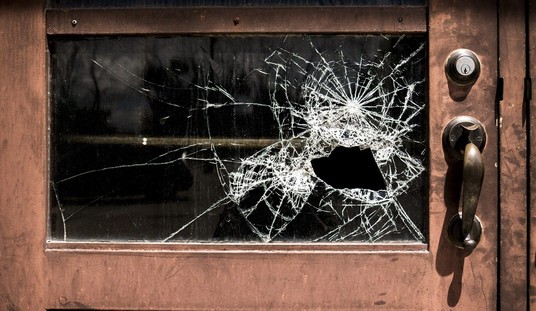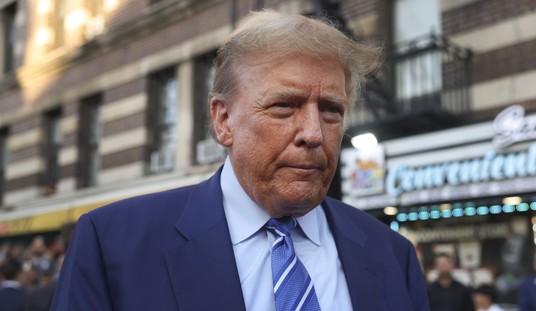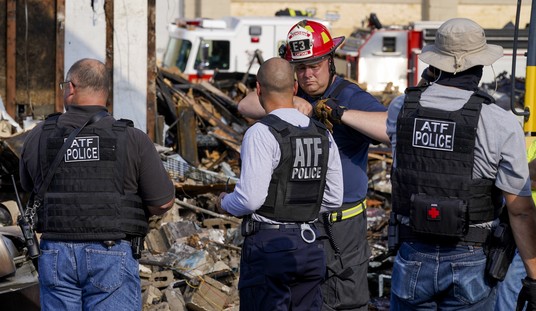After the Supreme Court struck down the “may issue” carry laws in New York City, ruling that it was unconstitutional for the state (and other regimes) to base approval for concealed carry licenses on an arbitrary and capricious determination of a “justifiable need” to carry a gun in self-defense, many anti-gun jurisdictions have tried to circumvent the ruling by relying instead on new or existing “suitability” or “good moral character” clauses to deny otherwise eligible applicants from exercising their right to keep and bear arms.
Even before the Bruen decision was handed down a New York City resident named Joseph Srour had filed a lawsuit challenging the constitutionality of the city’s “good moral character” clause, which was invoked in denying him a premises permit for both handguns and long guns, despite the fact that he was legally eligible under federal law to purchase firearms. On Monday, U.S. District Judge John Cronan agreed with Srour and his attorney Amy Bellatoni that the city’s “good moral character clause” is “inconsistent with the nation’s historical tradition of firearm regulation” and struck down the rule in question, though he did stay his decision for a couple of days to give New York City time to appeal.
In his opinion, Cronan took city officials to task for the “broad and unrestrained discretionary standards” imposed on every applicant, which he found to be unconstitutional on their face. In Srour’s case, the denial was based on two arrests in the mid-1990s (though both cases were later dismissed by prosecutors) as well as Srour’s driving record, which includes a number of license suspensions, revocations, and moving violations between 1991 and 2015. According to the NYPD, that record “demonstrates an inability to abide by laws and regulations, shows a lack of moral character, and provides an additional ground for denial”; which Cronan deemed utterly unacceptable.
While Defendants’ briefing does not expressly reveal their view as to the conduct at issue in this case, they maintain that the Second Amendment applies only to “responsible” and “lawabiding” individuals. Because a “good moral character” requirement separates those who are “responsible” and “law-abiding” from those that are not, Defendants argue, the challenged regulations are not “presumptively unconstitutional” but instead “presumptively constitutional.” In other words, Defendants seem to identify the conduct challenged in this case as the possession of firearms by someone lacking good moral character and reason that such conduct is not protected under the Second Amendment because such a person is not “responsible” and “law-abiding.”
The Court disagrees. The conduct at issue is the possession of a firearm. The question is whether such conduct in possessing firearms may be constitutionally regulated. Whether an applicant “lacks good moral character” is not part of the conduct being regulated. The requirement that an applicant submit to a determination of moral character instead is the regulation itself. In arguing otherwise, Defendants impermissibly merge a person’s conduct with their status as defined by the regulation. Bruen, however, draws a clear distinction between the individual’s conduct and the regulation which burdens that conduct.
As Cronan noted, the challenged provisions of New York City’s licensing law “land very close to the problematic “may issue” laws criticized in Bruen” by empowering a licensing official to approve or deny a permit based on their “discretionary assessment of the applicant’s ‘good moral character’ and the determination of a vaguely defined presence of ‘good cause.'”
Much like the “proper-cause” inquiry invalidated in Bruen, permitting denial of a firearms license based on a government official’s “good moral character” or “good cause” assessment has the effect of “prevent[ing] lawabiding citizens with ordinary self defense needs from exercising their right to keep and bear arms.”
Under the former versions of both Sections 3-03 and 5-10, a licensing official would make a judgment call about the character, temperament, and judgment of each applicant without an objective process. There are some objective components that come into play this process: whether or not an applicant has been arrested, indicted, or convicted of a crime, for example, is a discernible fact. But the former versions of Sections 3-03 and 5-10 did not specify how a licensing official was to consider those facts, or even that any of those facts was dispositive; Sections 3-03 and 5-10 only generally required their consideration by the official in arriving at the ultimate conclusion of whether to deny a permit or license based on the applicant’s lack of “good moral character” or “other good cause.”
Relatedly, and probably more problematically, by allowing the official to make a determination of the person’s moral character, and to vaguely consider “other good cause,” Sections 3-03 and 5-10 further bestowed vast discretion on licensing officials. Indeed, subsection (n) of each provision allowed a licensing official to deny a permit based on “[o]ther information [that] demonstrates . . . other good cause for the denial of the permit.” The permissive language of these provisions—allowing that a permit “may be denied”—does not undermine the fact that the challenged regime requires “the appraisal of facts, the exercise of judgment, and the formation of an opinion” prior to the issuance of a license.
New York City attempted to defend the laws in question by pointing to 18th and 19th century laws that deprived entire classes of people their right to keep and bear arms under the determination that they were “dangerous”; from Catholics to freed slaves. The city also tried to justify the “good moral character” clause by comparing it to 19th century surety laws, which required some individuals deemed a threat by officials to post a surety bond before possessing or carrying a gun.
Cronan rejected those analogies, noting that the broad exclusion of entire classes of people were ostensibly made on objective grounds, offensive as many of them might be today. As for the surety laws, Cronan pointed out that the “good moral character” clause or “other good cause” standards are “vastly broader than the circumstances that triggered a surety obligation under these statutes.”
Srour’s attorney Amy Bellatoni calls Cronan’s decision a “major win for self-protection in New York City,” and I think she’s right. The city will almost certainly appeal the ruling to the Second Circuit Court of Appeals before Cronan’s stay expires on Thursday, so there may not be an immediate improvement in practice, but the writing is on the wall for New York City’s subjective and discretionary approach to allowing a fundamental civil right to be exercised.









Join the conversation as a VIP Member